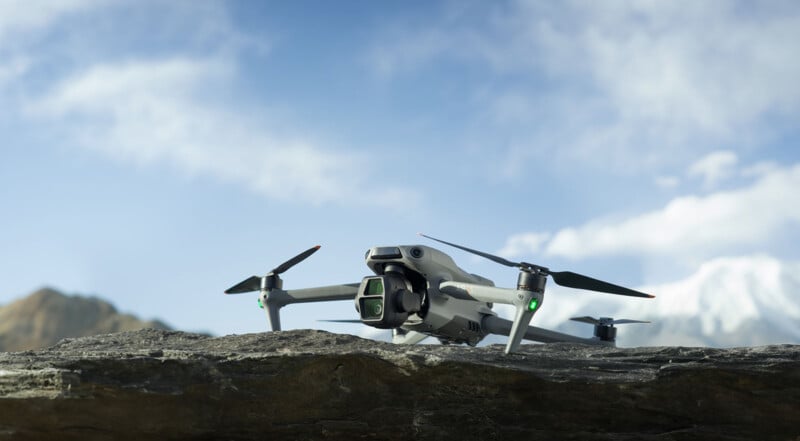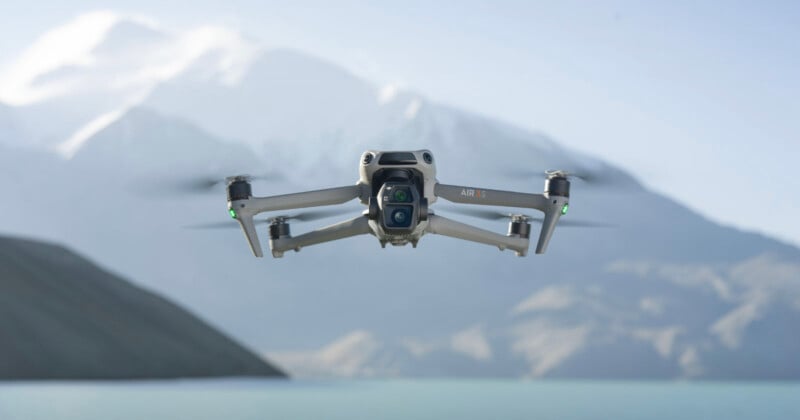DJI Responds to Border Issue as US Customs Scrutinizes Chinese Drones
![]()
Earlier this week, DJI launched the Air 3S, its exciting new dual-camera drone with a larger image sensor and support for 10-bit video recording. However, as noted in PetaPixel‘s coverage, retail availability hasn’t been announced yet, an unusual shift from DJI’s typical product launch. DJI detailed why in a new blog post, explaining that a “customs-related misunderstanding” is to blame.
In a new post on its Viewpoints blog, DJI says “A customs-related misunderstanding is currently affecting DJI’s ability to import select drones into the United States.”
“This appears to be part of a broader initiative by the Department of Homeland Security to scrutinize the origins of products, particularly in the case of Chinese made drones,” DJI adds.

Aiming to provide clarity around the situation, the Chinese company says that the situation, which is affecting the new Air 3S among other drones, is a situation with customers and the issue is “not a ban” and “does not appear to be linked to the proposed legislation against DJI in the U.S. Congress.”
Per DJI, the U.S. Customs and Border Protection (CBP) has cited the Uyghur Forced Labor Prevention Act (UFLPA) as the reason for the holdups of DJI products at customs. However, DJI claims these allegations are “entirely unfounded and categorically false,” adding that the CBP has “no reason” to hold DJI’s drones.
The UFLPA requires U.S. customs agents to treat goods made in Xinjiang, whether entirely or only in part, as having been manufactured using forced labor, rendering these goods inadmissible to the American market. DJI says the law enables the CBP to hold goods even without evidence.
Further, DJI claims that it has “substantial evidence” that demonstrates the company’s compliance with U.S. regulations, including the robust UFLPA.
A DJI spokesperson tells PetaPixel that the customs-related issue has primarily impacted DJI’s ability to bring enterprise and agricultural drones into the United States but is now impacting the company’s ability to sell the new Air 3S drone to consumers through the typical retail partnership channels.

The company also tells PetaPixel that it does not believe the ongoing issue at the border has anything to do with pending legislation in Congress, including the controversial Countering CCP Drones Act. DJI says the new action seems to be part of a broader initiative by the Department of Homeland Security to scrutinize the origin of products entering the U.S., especially for Chinese-made drones.
DJI is actively working with the CBP to provide the required documentation to resolve the issue and demonstrate DJI’s compliance with the UFLPA.
“The evidence clearly supports DJI’s compliance, while the claims of any violations are baseless and unfounded,” DJI explains. “We are confident that this issue will be resolved promptly if evaluated on its merits.”
DJI remains committed to the American market and will provide updates on the situation as it develops.
Image credits: DJI